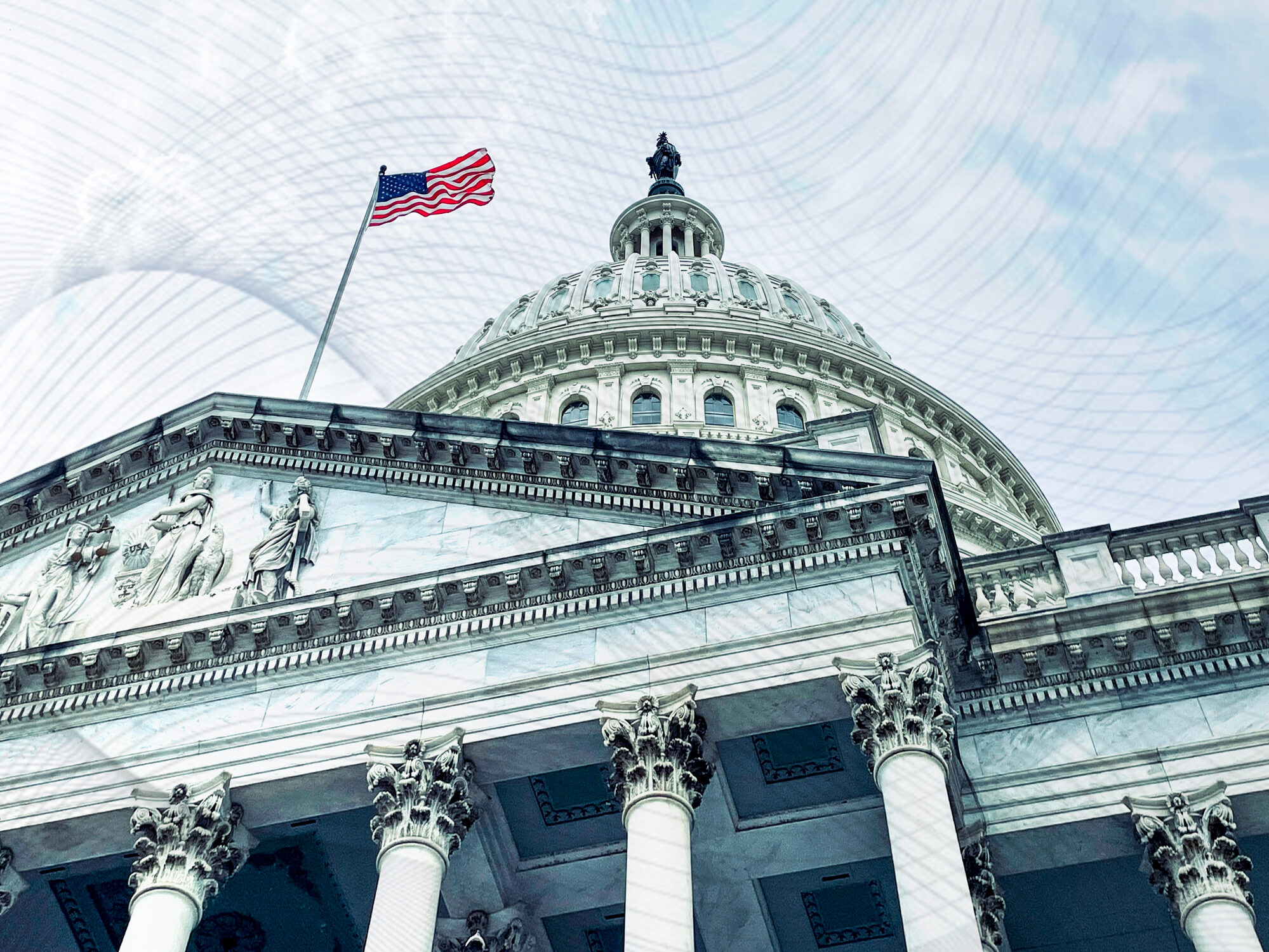
What They Are Saying: Financial Experts, Policymakers Applaud President Trump’s Executive Order to End Government-Driven Debanking
Aug 21, 2025
President Trump signed an executive order taking direct aim at government-driven “debanking,” ordering regulators to remove “reputation risk” from the supervisory process and directing the U.S. Treasury to partner with Congress on a national strategy to end the practice.
Americans for Free Markets (AFFM) commends this decisive action to address the long-standing problem of “debanking” — where banks, under pressure from politicized federal regulators, terminated or denied services to lawful customers. As the Administration works to advance the spirit of the EO, leading conservative commentators, policymakers, and financial experts are outlining solutions to rein in regulators and guarantee fair access to financial services by:
FIXING A BROKEN (AND POLITICIZED) REGULATORY SYSTEM:
President Donald Trump: “…The one group of people that banks are afraid of are the regulators. The regulators control the banks… a regulator can put that bank out of business… So, there is a lot of debanking… essentially, they make it impossible to do business. And those people are very bad and very dangerous, and they shouldn’t be doing it.”
Majority Leader Steve Scalise (R-LA): “The Executive Order also improves the supervisory process by stopping unelected regulators from using ‘reputational risk’ as a component of financial supervision and as a tool to target those who don’t align with their political agenda.”
Jonathan Gould, Office of the Comptroller of the Currency: “The OCC has already taken initial steps to depoliticize the federal banking system consistent with the President’s Executive Order. Earlier this year, the OCC removed references to reputation risk from its handbooks and guidance documents. Soon it will propose a rule removing these same references from its regulations.”
Michelle Bowman, Vice Chair for Supervision, Board of Governors of the Federal Reserve System: “The Federal Reserve is no longer including [reputation risk] in our examinations or in our supervisory activities to ensure that the banks can that banks can have as customers, anyone that they choose to, that’s engaged in legal activity, and they can’t discriminate against them based on their business model, their political views, or otherwise.”
Charles Gasparino, FOX Business with Larry Kudlow: “What Trump is championing now is extraordinary—it’s all about upward mobility. The Trump Organization was debanked by a dozen banks, and many others were denied services as well. The Biden administration essentially encouraged it, targeting businesses they didn’t like. Crypto firms in particular had a hard time accessing banking, and one source even described the issue at Bank of America as a ‘hot potato,’ with the bank feeling pressure—harassed—by OCC regulations and the Fed.”
ESTABLISHING FEDERAL FAIR ACCESS STANDARD:
Former U.S. Senator Pat Toomey (R-PA), AFFM Advisor: “Regulators should develop a national fair access standard that would forbid banks from denying services to people or businesses on the basis of the political affiliation or political views of those people or business owners. A national fair access standard would provide unform national guidelines to banks and prevent an unworkable patchwork of state debanking laws.”
Scott Wilfong, Louisiana businessman: “To put an end to unintended consequences of state activity on a national issue like debanking and ensuring access to banking services, federal policymakers must enact a national standard that codifies into law that banks are prohibited from denying services for religious or political reasons while adding clarity and consistency to the regulatory process.”
Former U.S. Attorney General Bill Barr: “When there’s an effort by a state to take what is, by definition, a national network or system that’s meant to facilitate commerce across the country, then our antenna has to go up and say, this is a direct attack on our common market and what makes it possible… It’s going down the wrong path at the end of the day, because it validates the whole idea of using a business for political objectives…Decisions should be made based on free market principles, and so I think we stick with that principle.”
MODERNIZING OUTDATED “NATIONAL SECURITY” LAWS:
David Ibsen, AFFM Executive Director: “Policymakers do not need to choose between security and fairness. A modernized anti-money laundering regime would strengthen both — allowing regulators and institutions to focus on those posing a real risk while reducing the burden on law-abiding financial institutions and their customers.”
Jorge Jraissati, president of the Economic Inclusion Group: “To truly fix debanking, Congress has to propose structural changes to America’s anti–money laundering (AML) framework. These regulations can be weaponized given their lack of objectivity, transparency, and due process.”
Americans for Prosperity (AFP): “…a few additionally policy changes that would relieve government pressure that has led to the account closure of too many Americans: Increase the $10,000 threshold that triggers the creation of a Currency Transaction Report, which has not been updated since it was implemented when Richard Nixon was in the White House; Update requirements for when and how often banks have to file Suspicious Activity Reports; Bring accountability and transparency to how agencies issue guidance and conduct examinations of financial institutions.”
Nicholas Anthony, policy analyst, CATO Institute: “Good lawmaking should be built on clear and robust evidence. That’s even more true when changing the law means restricting the freedoms of other Americans. As the Trump administration and other policymakers look forward, they should prioritize repealing the confidentiality requirements that prevent financial institutions from telling customers why their accounts were closed. Doing so would add transparency and help better identify where additional reforms are needed.”
CODIFYING REGULATORY CHANGES INTO LAW:
Former U.S. Senator Pat Toomey (R-PA), AFFM Advisor: “…The Trump administration has taken major steps against government-driven debanking, including through the recent executive order. It’s time for Congress to codify those measures … and end government-driven debanking once-and-for-all.”
U.S. Congressman Dan Meuser (R-PA-09): “We’re bringing common sense and real things that deliver results… My friend Andy Barr on Financial Services, he’s got a bill called the FIRM Act, which will remove reputational risk. I have a bill, the SAVE Act, which allows the law to be followed… guidance would be non-binding, and the threats will be unlawful. So we’re working on it… We’re trying to create a reasonable and fair access so business decisions can be made, not political decisions.”
Wall Street Journal Editorial Board: “Legislation is the best way to stop another Operation Choke Point. South Carolina Sen. Tim Scott has introduced a bill to prohibit financial regulators from considering reputational risk, and Reps. Andy Barr and Ritchie Torres have offered a bipartisan companion bill in the House. Perhaps Mr. Trump could broker a bipartisan deal.”
Senate Banking Committee Chairman Tim Scott (R-SC.): “Here in Congress, I’ve led my colleagues in fighting back against debanking, including passing legislation to end the subjective use of ‘reputational risk’ in bank supervision. I am glad to see today’s E.O. which will ensure that no regulator, and no bank, is above the principles of fairness and market access. I’ll continue to work with President Trump to end the debanking of law-abiding Americans and federally legal businesses on the basis of their political or religious affiliations.”
NY Post Editorial Board: “The [debanking] abuse apparently began under President Barack Obama, deployed against disfavored businesses such as gun manufacturers on the laughable ground that they posed a “reputational risk”; it expanded under President Joe Biden to hit crypto and tech startups, as well as individuals whose opinions or political activity got labeled “dangerous.” The good news is that Donald Trump is signing executive orders to crack down on the abuse and will surely sign legislation to prevent it.”
Read about President Trump’s executive order HERE.
Find further solutions to fight the debanking crisis HERE.

